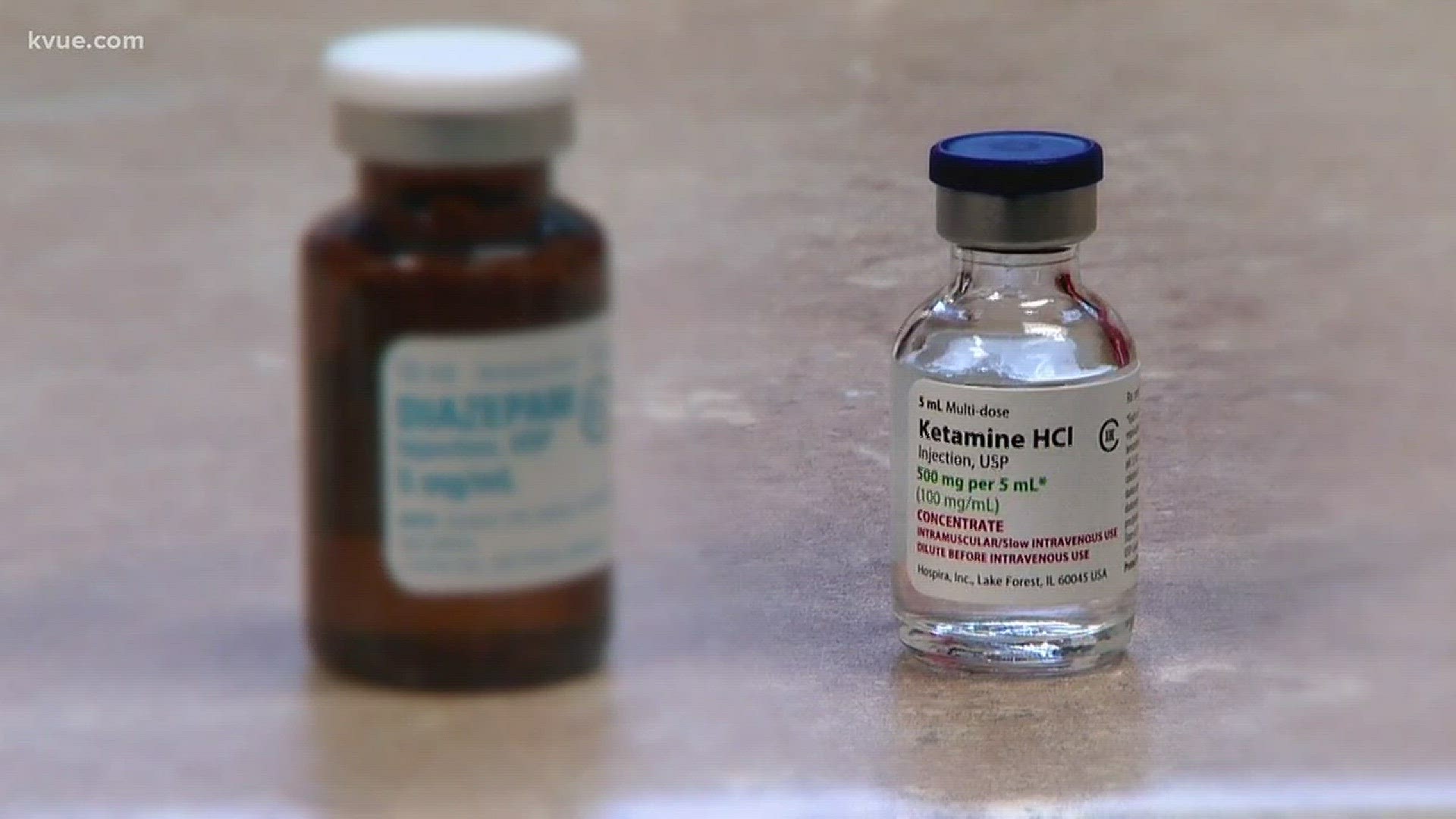Pain management specialists are turning to a popular "club drug" to treat chronic pain sufferers.
Ketamine is used as an anesthetic, but it is also considered a "club drug" like ecstasy because it produces a trippy and dissociative sensation.
Mark White has been an Austin pain management specialist for 20 years. He said one treatment of Ketamine infusion can keep a patient pain free between one to four months.
For patient Lisa Turner, it has lasted about that long. However, she says when she experiences pain, it can get pretty bad.
"I'm stuck in bed. I can't deal with sound and light, basically being stuck in a cold dark room... So the majority of my pain is up around my skull and into my shoulders and mainly around my neck, and basically it's like an intense headache," Turner said.
Turner was diagnosed in May of 2009 with Guillain-Barré Syndrome: an autoimmune disease that attacks a person's body. It temporarily paralyzed Turner.
"I had to relearn how to walk. I had to relearn how to swallow. It was like being a baby again," she said.
Since then, Turner's painful journey has led to the discovery of Ketamine infusions.
"It's actually quite effective for disrupting the memory that our cells have on how to transmit pain," said White.
White said nerve pain, which Turner suffers from, is the worst kind.
"It usually presents itself as either a type of burning, severe burning, or it could be like lightning bolts, electrical shocks, and you can have both, actually, but it's excruciating," said White.
But with each treatment, it becomes less excruciating -- for a bit, buying Turner a little more time as she finds more options to treat her pain.
Meantime, White said the use of Ketamine infusions is on the rise because it's safe and effective, especially with more doctors not prescribing opioids.
"In fact, it can reverse a lot of the bad effects of opioids like tolerance and hyperalgesia, which is a condition where patients become more sensitive to pain," said White.
White said some insurance companies cover Ketamine infusions. But without insurance, each treatment costs around $900.
It is important to note that the FDA has not approved Ketamine for this particular use. But it is also important to point out that doctors using off labeled medications, like in this case, are working within the law and it's common.
For example, Botox was used for migraine prevention before the FDA actually approved it.

